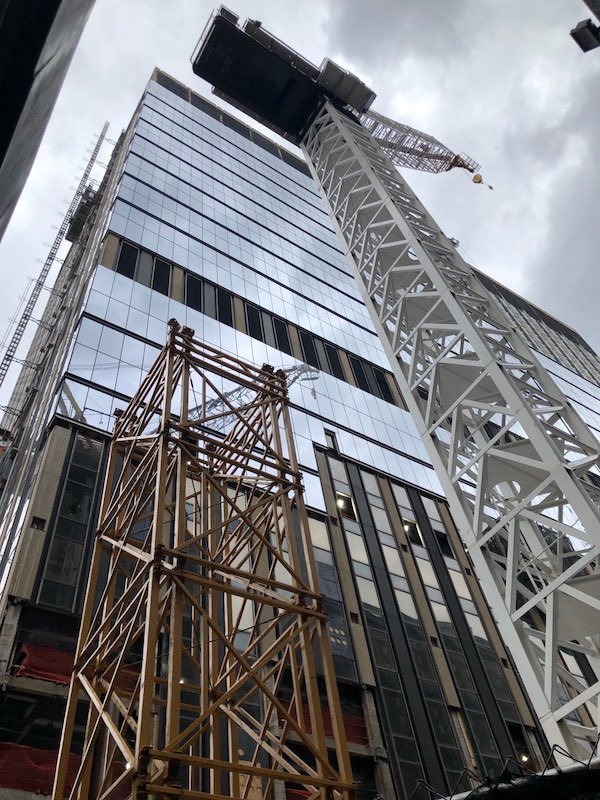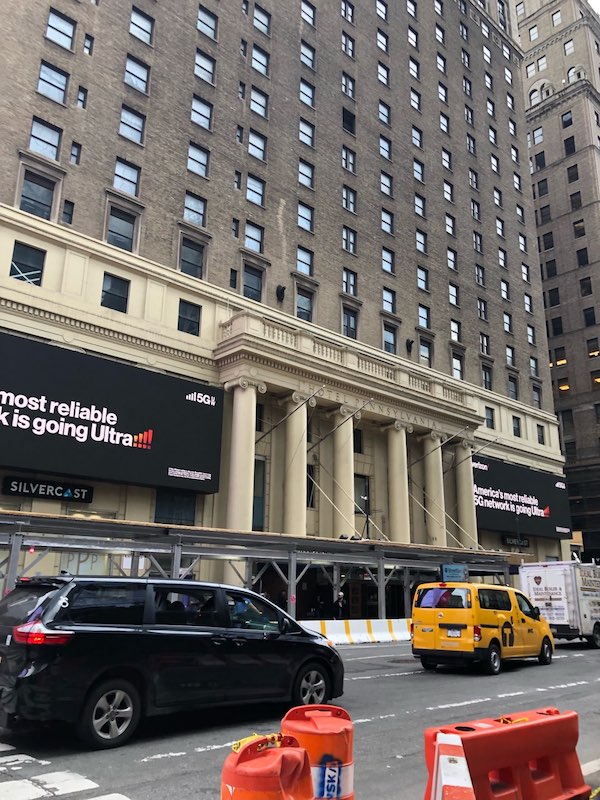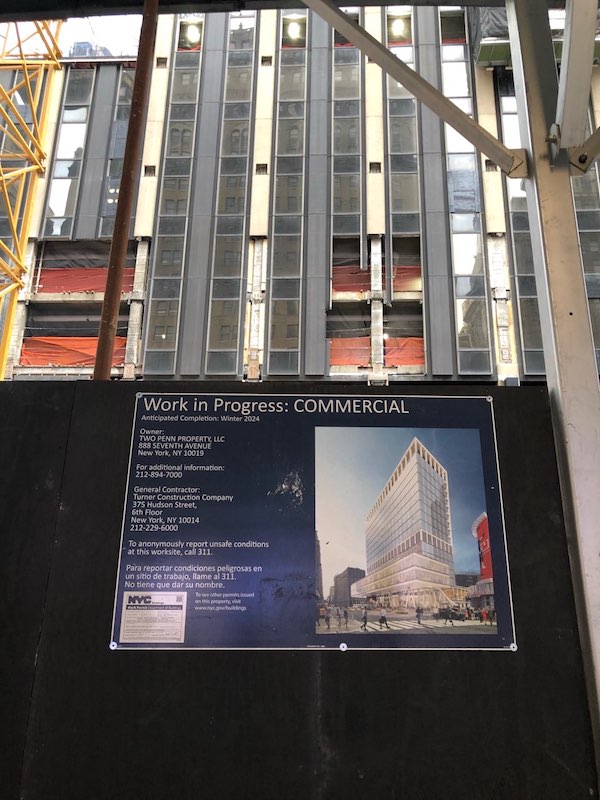
BY LOWELL KERN, CANDIDATE FOR THE 75th ASSEMBLY DISTRICT | New York deserves a world-class transit hub that works for the city and our surrounding community. The current version of the Penn Station area redevelopment plan fails at achieving this mission—but the solution is not to scrap the entire plan. Instead, we must recognize the underlying facts, take into account the concerns of the community, and revise the plan to build a transportation center we can be proud of. This while building more affordable housing, more community facilities, and more open space, all of which we also desperately need.
The current proposal envisions the rebuilding of 10 blocks in the vicinity of Penn Station. Given that Vornado Realty Trust owns seven of those sites, the simple truth is that Vornado is likely to redevelop those blocks. Indeed, work has already started with the demolition of the Hotel Pennsylvania and the construction of new entries and retail at 2 Penn Plaza. We must negotiate a plan that meets the demands of our neighborhood instead of succumbing to the desires of the developers.
As of now, the plan would take three lots on the south side of West 31st Street by eminent domain and building additional towers on these blocks; with new train tracks underground to serve the new tunnels being built as part of the Gateway project. This action will shutter long-standing community businesses, evict hundreds of residents of the block, and close a church. These losses must be addressed by a revised plan.

The overall problem with the current redevelopment plan is that it addresses the key issues backwards. The driving force must be to understand the needs of commuters and the creation of transit facilities that meets these needs. Prioritizing the development of office space, and then using whatever funding those towers generate to plan for a new Penn Station is putting the cart before the horse. Further, if all we do is protest, the community gets nothing out of this. “Just say no” is not a recipe for sound public policy.
Here’s how I would propose to address the redevelopment of our neighborhood:
First, we must fully understand the transportation needs of the region before beginning any construction. Uner the current scenario, we have competing entities in AMTRAK, the MTA, and NJ Transit each fighting for their turf. We must create a single leadership entity, such as the Port Authority, to oversee the various transportation agencies, and to speak with a single voice on transportation issues. This will help all stakeholders understand the extent and complexity of the underground rail demands, both commuter rail and subway. This entity would help manage the Federal review process to understand what must be done underground before determining what is built above ground. Further, this analysis must include the construction of an above-ground train station that welcomes commuters and regional travelers into our great city.

Second, we need to address the financing to achieve those goals. We need to have a realistic idea of what it is going to cost for the transit improvements. Only then can we address funding sources to meet those costs, separate and apart from the construction of skyscrapers. We need to investigate other alternative state funding sources, including general budget and bonds. We must eliminate the tax break that Madison Square Garden currently enjoys. We must insist that the Garden make a significant contribution to improvements in the area if the Garden insists on remaining at its current location.
Third, once we know the transit needs and have an understanding of funding sources, then we should address the commercial development and the price to be paid for development rights. Any new development must include a comprehensive mixture of all classes of office space, retail, entertainment, community facilities, and, most importantly, more affordable housing. Empire State Development must address the displacement of local businesses and residents before the first phase of construction even begins.
We have achieved some results on this phase already. Local community members have forced the inclusion of affordable housing and community facilities in at least one block of the proposed development area. But more needs to be done. At least one of the other sites in the first phase of development must be converted to affordable housing. We need to provide move-in ready units for any neighbors displaced from their homes on West 31st Street, granting these residents the basic dignity of remaining in their neighborhood. We should stipulate that these residents will pay the same rent, under the same terms and conditions, as their current leases. Because this building will be solely for residential use, the building can be scaled back in size, similar to the height and bulk that the State has already agreed to for the building on the block located in CB4.
I’ve been dismayed by the prioritization of office towers over community needs. If we address this project by making the transportation needs the primary focus of the project, we can accurately assess the funding needs which in turn will dictate the scale of the rest of the project. Above all else, we need to ensure a solution that takes care of the residents and commercial tenants of West 31st Street and the surrounding blocks.
Only careful consideration, community planning, and negotiation of the issues will result in New York City gaining a renowned transit center while improving the neighborhood that so many of us call home.
Lowell Kern is the immediate past Chair of Manhattan Community Board 4, a member of the Empire Station Complex Community Advisory Committee Steering Committee and Working Group, on the Board of Directors for the Hudson River Park Trust, and a candidate for the 75th Assembly District being vacated by Assemblymember Dick Gottfried.
Chelsea Community News is made possible with the help of our awesome advertisers, and the support of our readers. If you like what you see, please consider taking part in our GoFundMe campaign (click here). To make a direct donation, give feedback, or send a Letter to the Editor, email scott@chelseacommunitynews.com.

You must be logged in to post a comment Login